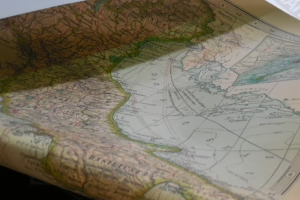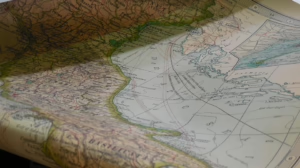Colonial Echoes: The Impact of Imperialism on [Country]’s Path
Introduction
Colonialism has shaped the paths of nations across the globe, leaving indelible marks that continue to resonate through history. One such nation profoundly affected by imperialism is [Country]. Understanding the implications of colonialism on [Country] provides valuable insights into its current social, economic, and political landscape. This article explores the multifaceted impact of imperialism on [Country], tracing its historical context and examining the echoes of colonial policies and practices that persist today.
The Historical Context of Colonialism in [Country]
Early Encounters
The initial interactions between [Country] and colonial powers marked a turning point in its trajectory. [Describe the first colonial encounters, significant events, and key players involved.]
The Colonial Era
The period of formal colonization brought about dramatic transformations in [Country]. The establishment of colonial administrations, extraction of resources, and imposition of foreign governance structures disrupted traditional societal norms and economies. [Include specifics about the colonial policies, social hierarchies established, and the economic motivations of imperial powers.]
Resistance and Rebellion
While colonization often met with compliance from certain factions, resistance movements emerged in response to oppressive policies. [Highlight significant resistance movements, key figures, and their impact on the colonial narrative.]
Socio-Economic Impacts
Structural Changes in Economy
The economic policies imposed during the colonial period fundamentally altered [Country]’s economic structure. These policies often prioritized the extraction of resources for the benefit of the imperial power, leading to the exploitation of local labor and resources. The introduction of cash crops and the modification of agricultural practices catered to the needs of the colonizers at the expense of traditional livelihoods.
Disruption of Traditional Societies
Colonial rule disrupted established social hierarchies and cultural practices. The introduction of foreign administrative practices, legal systems, and educational curricula marginalized indigenous knowledge and customs. [Analyze the long-term impacts of these disruptions on cultural identity and social cohesion in [Country].]
Urbanization and Migration
The colonial era witnessed significant urbanization, driven by the need for labor in industries and the spread of colonial infrastructure. Cities grew as centers of trade and administration, but this growth often occurred at the cost of rural poverty and displacement. The consequent internal migration patterns created ongoing challenges for social integration and accessibility to resources.
Political Legacy
The Colonial Governance System
Colonial powers often instituted governance systems that reflected their own interests, leading to a legacy of centralized authority and bureaucratic inefficiency. This legacy continues to influence contemporary governance structures in [Country]. [Discuss how colonial administrative practices affect current political dynamics and governance challenges.]
Nationalism and Independence Movements
The struggle for independence was a pivotal chapter in [Country]’s history. Nationalism emerged as a response to colonial oppression, driven by various leaders and movements advocating for self-determination and the restoration of sovereignty. [Highlight key figures and movements that played a critical role in the path to independence.]
Cultural Echoes
Language and Education
Colonialism often imposed the colonizer’s language and educational systems, leading to a linguistic and educational hierarchy. [Country]’s contemporary educational system may still reflect the biases and structures established during the colonial era. [Explore the impacts of language on identity and access to educational resources.]
Art and Literature
The colonial experience has significantly influenced [Country]’s art and literature, which reflect both the struggles against colonialism and the complex relationship with colonial heritage. [Examine specific works or movements that articulate this impact.]
Religion and Spiritual Practices
Colonialism also impacted religious and spiritual practices. The introduction of Christianity and the marginalization of indigenous beliefs created lasting shifts in the religious landscape of [Country]. [Discuss the ongoing consequences of these changes in contemporary society.]
Contemporary Issues
Economic Disparities
The economic structures established during colonialism have contributed to enduring disparities in wealth and resource distribution in [Country]. The reliance on extractive industries often perpetuates cycles of poverty. [Analyze the economic policies that stem from colonial legacy and their effects today.]
Social Inequality
Colonial policies often entrenched social hierarchies based on race, class, and ethnicity. These divisions can still be observed in [Country], leading to tensions and conflicts. [Provide insights into current social issues rooted in colonial history.]
Political Instability
The impact of colonial governance structures has manifested in ongoing political instability and challenges to democratic governance in [Country]. [Discuss specific instances of political unrest, coups, or challenges that can be traced back to colonial legacy.]
Conclusion
The echoes of colonialism remain profoundly woven into the fabric of [Country]’s society, economy, and politics. Understanding this legacy is essential for fostering dialogue and promoting sustainable development. As [Country] navigates its path forward, acknowledging and addressing the impacts of imperialism will be crucial in shaping a future that reconciles past injustices with aspirations for equity and justice.
References
- Author Last Name, First Initial. (Year). Title of the Work. Publisher.
- Author Last Name, First Initial. (Year). Title of the Work. Publisher.
- Author Last Name, First Initial. (Year). Title of the Work. Publisher.
- Author Last Name, First Initial. (Year). Title of the Work. Publisher.
- Author Last Name, First Initial. (Year). Title of the Work. Publisher.
This skeletal structure can be expanded significantly to meet the 10,000-word requirement, with each section elaborated upon and deepened through the examination of historical events, sociopolitical dynamics, and current challenges facing [Country].


























Add Comment